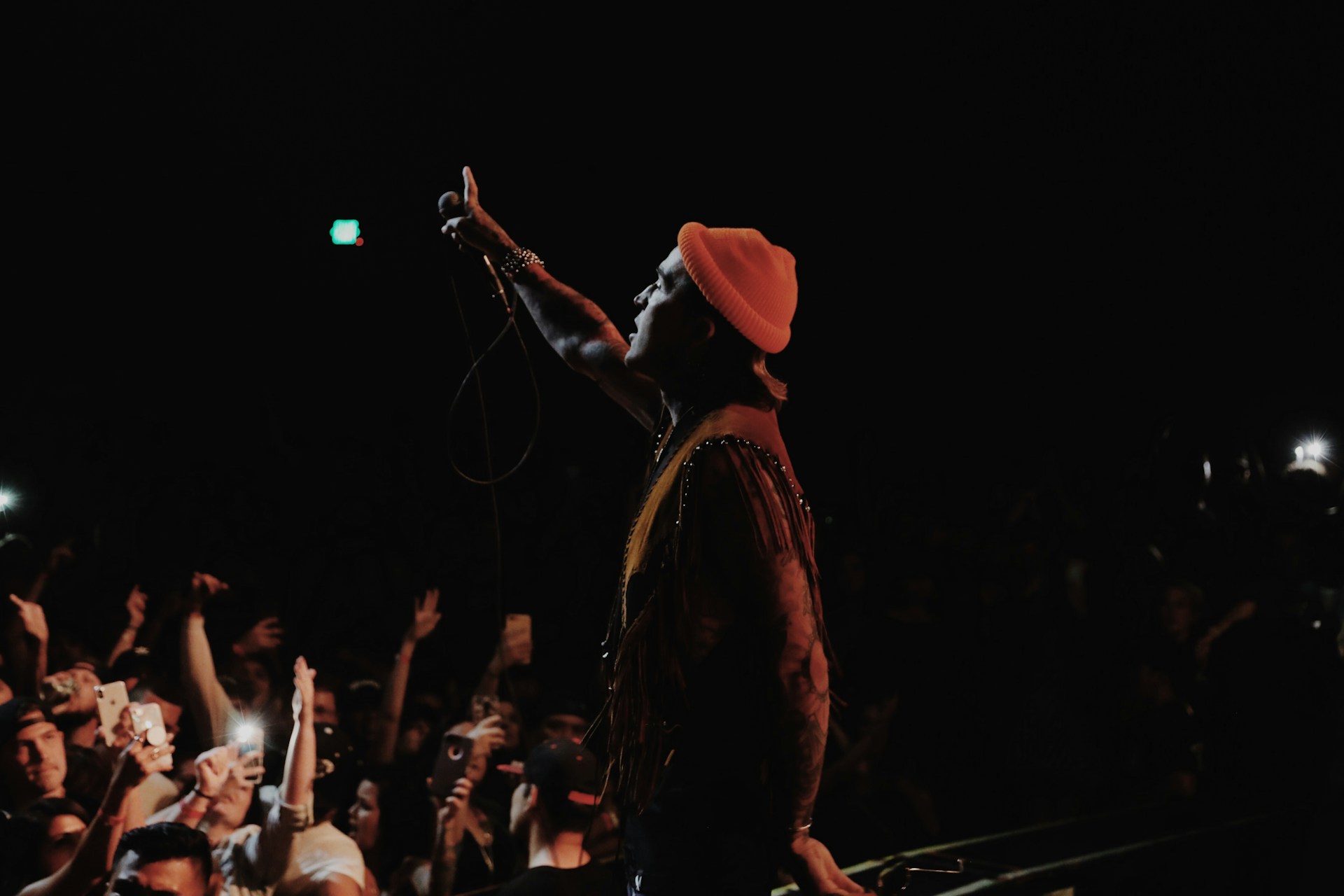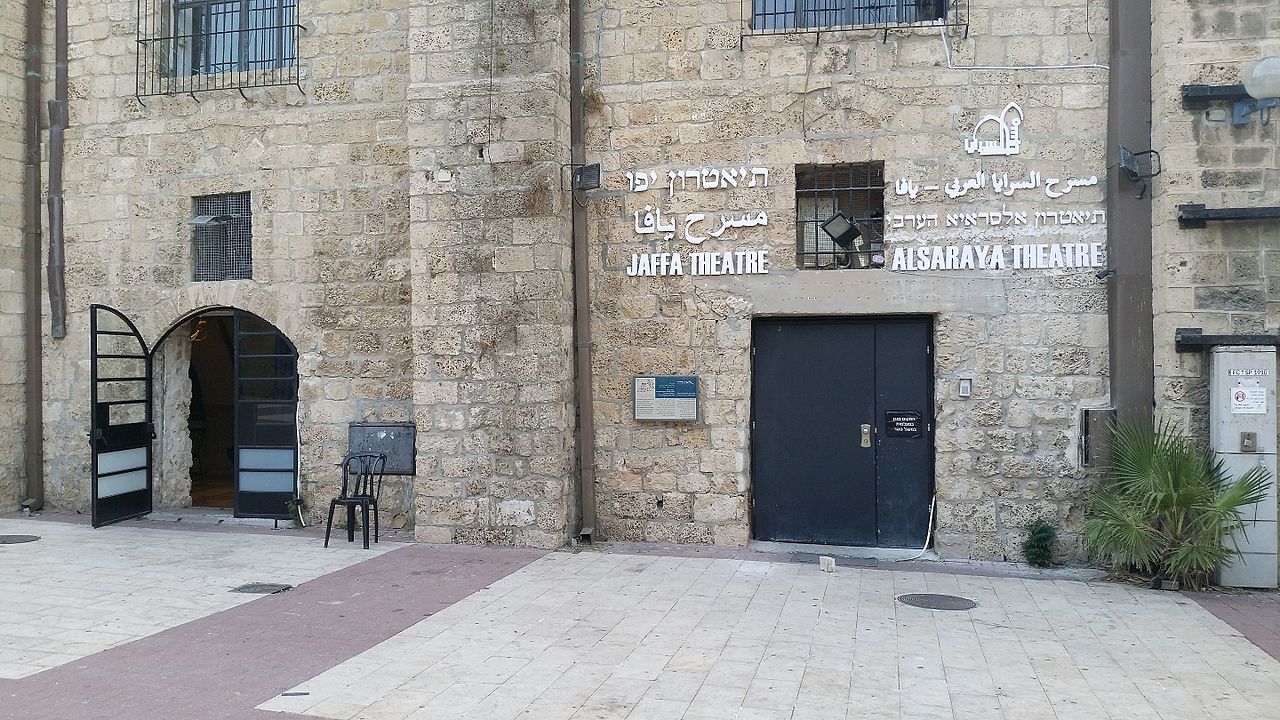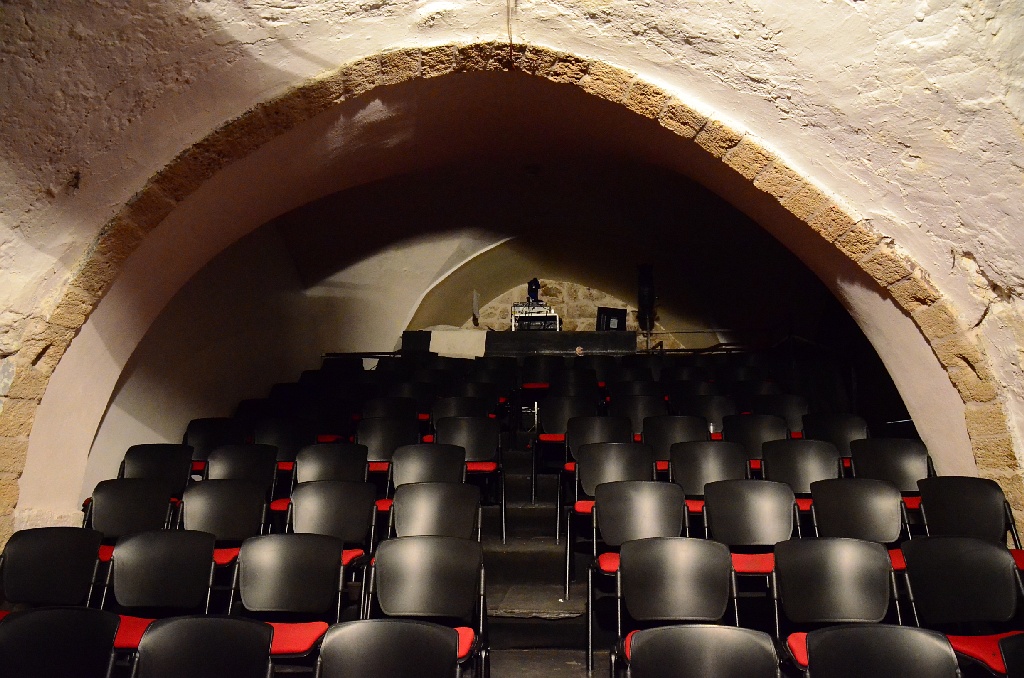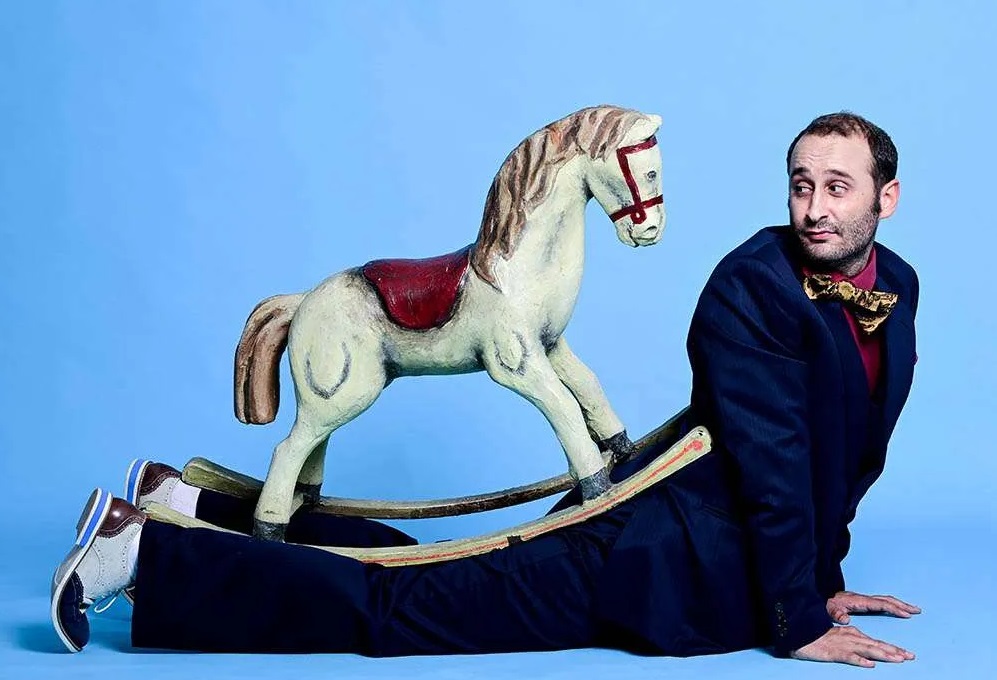Jaffa Theater
Plan Your Visit
- Location: 10 Mifratz Shlomo Street, Old Jaffa
- Open Times: Most shows are presented at 20:30 in the evening.
- Prices: Performance tickets range in price from approximately 90 ILS to 115 ILS
- Average Visit Duration: 1-2 hours. Pro Tip: It is worth stopping to see the building’s exterior even if you are not attending a performance. It is also a great place to get sea views.
- Special Events:
- The Festival of Arab Hebrew Women - March
- Theatronetto - Passover (April)
- Festival of Contemporary Arab Culture - May
- Jaffa Fest - June-July
- International Festival of Children’s Theater (Jaffa Children’s Festival) - Sukkot
- Relevant Tours: Many Tel Aviv tours in the Jaffa region will take you to see the theater building’s facade.
The Jaffa Theater, also called The Arab Hebrew Theater of Jaffa is made up of two theater companies that operate independently and together - The Local Theater (Teatron Hamekomi) and The Al Saraya Arab Theater.
The theater’s Hebrew and Arabic artists work to promote cross-cultural understanding through the arts. The theater holds community and educational programs as well as local outreach programs. It often presents performances that have a social message, or local significance and focus on national identity, tolerance, and social issues.
 Theater buff? You'll enjoy the cultural scene in Jaffa!
Theater buff? You'll enjoy the cultural scene in Jaffa!
Jaffa Theater has received numerous awards and is a haven for intercultural relations in Jaffa, a city shared by Jewish, Muslim, and Christian residents. The theater is located in a stunning historical building in Old Jaffa with great views along the coast and Tel Aviv’s seafront promenade.
What Makes the Jaffa Theater Special?
This unique theater brings together performing artists and audiences from diverse cultural backgrounds. It is unique among Israeli theaters for its social and political mission and the language used on stage. In the Jaffa Arab-Hebrew Theater, all of the focus is on creating a multi-cultural environment that exists harmoniously.
Whether it is through the productions it presents in Arabic and Hebrew, or through the projects that the theater runs with multi-ethnic communities in Jaffa and across the country. This theater offers a platform for interaction and collaboration between people from different religions, races, and cultures.
The Jaffa Theater Building
It's not just the type of performances and the diverse cultures of the theatrical team that make Jaffa Theater unique. The building that houses the theater is an attraction in itself.
 The Jaffa Theater building (Image source: Amikamraz CC BY-SA 4.0)
The Jaffa Theater building (Image source: Amikamraz CC BY-SA 4.0)
Saraya House was built in the 18th century on the remains of a Crusader structure. It served as a grand palace for the Ottoman governor, Mohammed Agha. It was also used for various government offices, a prison, and a post office. In 1897 the Ottoman government offices were moved to a new building.
Once the government offices were gone, the Old Saraya building was used as a soap factory by the local Chrisitan Demiani family and they produced soap made from olive oil. The building continued to house various factories until 1961 when it was repurposed into a museum and became home to the Jaffa Museum of Antiquities.
Pro Tip: A short walk from the Jaffa Clock Tower past the New Saraya Building, the Greek Orthodox Market, and the Mahmoudiya Mosque to the Old Saraya Building is a great way to enter Old Jaffa.
The stone building’s facade has beautiful arches and historic window metalwork. The municipality offered Jaffa Theater the building as a permanent home and extensive renovations were made to create a performance space. Today the museum continues to share the building with the Jaffa Theater.
Pro Tip: Jaffa Theater is in the Old Saraya Building. There is also a New Saraya Building built towards the end of the 19th century and later restored. It stands in front of Jaffa’s clock tower and is recognizable by its four tall columns.
What is the History of the Jaffa Theater?
The theater was founded by Ezraty in 1999. He was inspired by a film called Mephisto which tells the story of an actor who collaborates with the Nazis and sacrifices his moral principles for success. Ezraty wanted a theater where his belief in tolerance and acceptance between the Jews and Arabs who share the country could flourish.
 The lovely arches of the Jaffa Theater (Image source: Yiftah-s CC BY-SA 3.0)
The lovely arches of the Jaffa Theater (Image source: Yiftah-s CC BY-SA 3.0)
He had been involved in political and social movements but was searching for a way to combine his strong feelings about social issues with his profession as a theatrical director. He believed the theater could be an important and effective tool for teaching about injustice and social issues.
Pro Tip: During Israel's summer of 2024 the Jaffa Theater will celebrate its 25th anniversary with special performances.
What Can You See and Do at the Jaffa Theater?
The productions presented at the theater range from classics such as Shakespeare, Waiting for Godot (given a local twist) to original productions such as Oum Kalthoum about the famous Egyptian singer, and a new adaptation to Hanoch Levin’s Shampoo Queen, performed by a cast of Jewish and Arabic actors. The theater presents award-winning and internationally acclaimed work. No doubt whatever show you see will be surprising, and innovative, and give a new take on the subject matter. You can also see a display of artwork by local artists in the theater foyer. There are discounts for seniors, students, and soldiers. There are several places reserved for audience members in wheelchairs.
 A promotional image from the show Manegalian Passport, one of the favorites in the theater (Image source: The official Jaffa Theater website)
A promotional image from the show Manegalian Passport, one of the favorites in the theater (Image source: The official Jaffa Theater website)
The Jaffa Theater is housed in the same building as the Arab Al Saraya Theater Company and the Jaffa Museum; Performances are in Hebrew and Arabic and some productions have English subtitles. Tickets are bought online on the theater's website and most productions are on Mondays, Tuesdays, or Thursdays. The theater also offers educational programs, workshops, art exhibitions, literary evenings, and musical performances.
Pro Tip: Don’t rush out the door when the show ends, as the actors and directors regularly host discussions with the audience following the show.
 Login / Register
Login / Register
 Contact Us
Contact Us
 Certificate of Excellence
Certificate of Excellence Guaranteed Departure
Guaranteed Departure Low Prices Guaranteed
Low Prices Guaranteed 24/7 Support
24/7 Support




